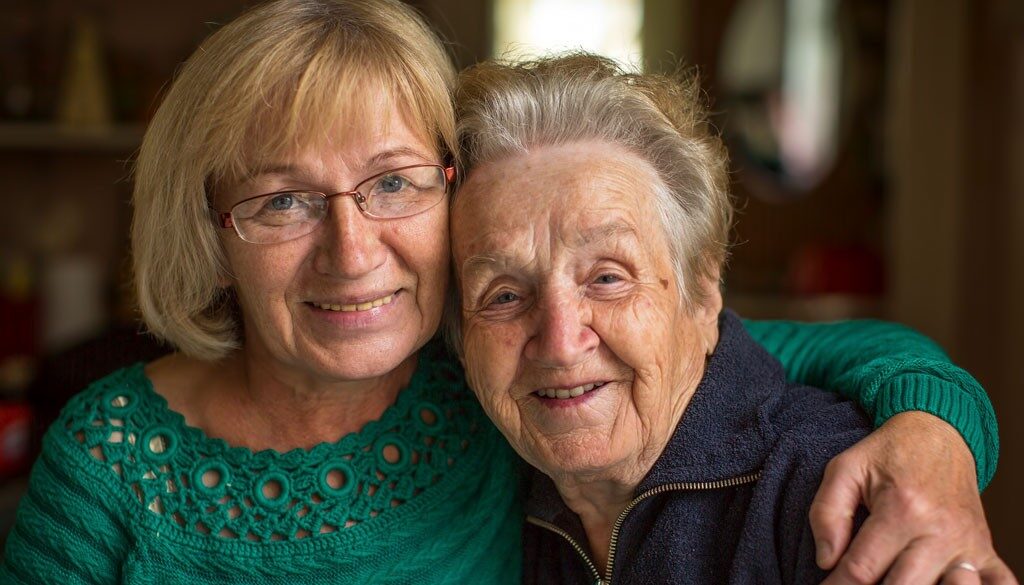Dealing With A Friend Or Family Member That Has Alzheimer’s
When one is diagnosed with Alzheimer’s Disease (AD) they often have a hard time remembering things and thinking clearly. This can have a strain on your relationship, so it is important to realize the main challenges people with Alzheimer’s face, and learning how to cope with it. It is also important to know how to help out friends and family adjust to this “new normal”.
Changes in Communication Skills
- Some communication problems caused by AD are:
- Trouble finding the right word when speaking.
- Problems understanding what words mean.
- Problems paying attention during long conversations.
- Frustration if communication isn’t working.
- Being very sensitive to touch and to the tone and loudness of voices.
- Loss of train-of-thought when talking.
- Trouble remembering the steps in common activities, such as cooking a meal, paying bills, getting dressed, or doing laundry.
- Problems blocking out background noises from the radio, TV, telephone calls, or conversations in the room.
- Coping with changes in communication skills:
- Make eye contact to get his or her attention, and call the person by name.
- Encourage a two-way conversation for as long as possible. This helps the person with AD feel better about himself or herself.
- Offer simple, step-by-step instructions.
- Repeat instructions and allow more time for a response. Try not to interrupt.
- Don’t talk to the person using “baby talk” or a “baby voice.”
- Say, “let’s try this way,” instead of pointing out mistakes.
- Ask questions that require a yes or no answer. For example, you could say, “Are you tired?” instead of “How do you feel?”
- Try not to say, “Don’t you remember?” or “I told you.”
Changes in Personality and Behavior
- Some common personality changes you may see are:
- Getting upset, worried, and angry more easily.
- Acting depressed or not interested in things.
- Hiding things or believing other people are hiding things.
- Imagining things that aren’t there.
- Wandering away from home.
- Pacing a lot of the time.
- Showing unusual sexual behavior.
- Hitting you or other people.
- Misunderstanding what he or she sees or hears.
- Changes in behavior include:
- How they feel:
- Sadness, fear, or a feeling of being overwhelmed.
- Stress caused by something or someone.
- Confusion after a change in routine, including travel.
- Anxiety about going to a certain place.
- Health-related problems:
- Illness or pain.
- New medications.
- Lack of sleep.
- Infections, constipation, hunger, or thirst.
- Poor eyesight or hearing.
- Alcohol abuse.
- Too much caffeine.
- Problems in their surroundings:
- Being in a place he or she doesn’t know well.
- Too much noise, such as TV, radio, or many people talking at once. Noise can cause confusion or frustration.
- Stepping from one type of flooring to another. The change in texture or the way the floor looks may make the person think he or she needs to take a step down.
- Misunderstanding signs. Some signs may cause confusion. For example, one person with AD thought a sign reading “Wet Floor” meant he should urinate on the floor.
- Mirrors. Someone with AD may think that a mirror image is another person in the room.
- How they feel:
- Coping with changes in personality and behavior:
- Keep things simple. Ask or say one thing at a time.
- Have a daily routine, so the person knows when certain things will happen.
- Reassure the person that he or she is safe and you are there to help.
- Focus on his or her feelings rather than words. For example, say, “You seem worried.”
- Don’t argue or try to reason with the person.
- Try not to show your anger or frustration. Step back. Take deep breaths, and count to 10. If safe, leave the room for a few minutes.
- Use humor when you can.
- Give people who pace a lot a safe place to walk. Provide comfortable, sturdy shoes. Give them light snacks to eat as they walk, so they don’t lose too much weight, and make sure they have enough to drink.
- Ask for help. For instance, say, “Let’s set the table” or “I really need help folding the clothes.”
Friends and Family
- Helping your spouse or partner:
- Continue participating in as many activities as you can with your partner.
- Find new activities that you can do together.
- Talk with your spouse or partner about what kind of help you would like from him or her now.
- Work with your spouse or partner to put information you may need later regarding caregiver services and costs.
- Helping your children or grandchildren:
- Talk openly about the changes you are experiencing because of your disease.
- Identify their emotional needs.
- Notify school social workers and teachers about your situation.
- Give them information about the disease.
- Try to find activities you can still enjoy together. If you can’t drive, plan a hike or bike ride. Check out local public transportation.
- Make it OK to laugh.
- Helping your friends understand what is going on:
- Share your experiences living with Alzheimer’s.
- Tell them what you’re still comfortable doing.
- Invite them to Alzheimer’s Association education programs and events.
- Let them know when you need help and support — and what they can do to help. Then, when they offer, take them up on it!
Source: nia.nih.gov
Source: alz.org




